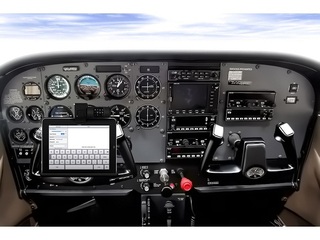
One time, I was on a plane from New York to San Francisco and I was stuck behind this woman who wouldn’t get off her phone for takeoff. The flight attendant asked her twice to put her phone away, and each time, the woman (who could’ve easily been a Real Housewife of blabbity blah) yelled back, “I will!” The flight attendant finally stopped a third time and said, “Ma’am, you need to turn off the phone now.” The woman didn’t answer as she continued texting. The flight attendant gave another, “Ma’am…” And finally, the Real Housewife turned off her phone and yelled, “There! Okay?!”
It was kind of surreal. Like, how do you get on a plane with a sense of entitlement to your texting conversation? We’re about to climb 30,000 feet in the air in a pressurized steel death trap, bitch!
The good news is that we may see fewer exchanges like the one described above, as the Federal Communications Commission will propose to lift the ban on cell phone use above 10,000 feet. The bad news is that we may find ourselves in close quarters with people who like to have loud, inappropriate cell phone conversations while we’re trying to sleep.
The proposed move would clear the regulatory issue of prohibiting cell phone calls on planes (calls would still be prohibited during takeoff and landing), but the decision to allow cell phone calls would ultimately be left up to airlines. Airlines would also have to install special equipment in their planes to communicate with cell phone towers. The FCC made a similar proposal in 2004, but dropped it after receiving complaints from flight attendants and other groups that ringing phones and loud conversations would be bothersome to other travelers.
Travelers are also split on the issue. A recent survey of 1,600 adults found that 51% had negative feelings towards the idea of in-flight calls while 47% had positive feelings towards it.
It makes sense. I was once alone in an above-ground subway car with a guy who was having a conversation on his cell phone and kept saying, “know what I’m saying?” Like, he was literally ending every sentence with “know what I’m saying?” It was so obnoxious, I seriously considered getting off at the next stop. But you can’t do that in a plane!
Delta Airlines told WSJ in no uncertain terms that it will not allow voice calls on its planes, citing years of customer feedback that indicates passengers do not want voice calls. JetBlue, on the other hand, said it would reevaluate the policy.
The news comes just weeks after the Federal Aviation Administration announced that passengers will now be able to continue using their mobile devices during takeoff and landing as long as they’re in Airplane Mode. Key to the new policy was the decision by the PED Aviation Rulemaking Committee (ARC) that most commercial airplanes can actually tolerate radio interference signals from portable electronic devices.
The FAA noted, however, that cell phones differ from other PEDs in that they’re designed to send out signals that are strong enough to be received from a great distance away.
Image source: digitaltrends.com

















